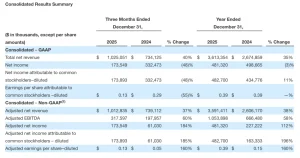Navigating the Crypto Landscape: How to Choose a Reliable Exchange Before Investing

With the rapid expansion of the cryptocurrency market, selecting a trustworthy exchange has become one of the most critical steps for any investor. While the sector offers immense opportunities, it is also riddled with risks stemming from volatility, cyber threats, and regulatory uncertainties. Choosing the right exchange can make the difference between secure investing and potential loss. This article outlines the key factors investors should consider before committing funds — from regulatory compliance and security measures to liquidity, transparency, and user experience — to ensure a safe and sustainable entry into digital asset markets.
Understanding the Importance of Exchange Selection
Cryptocurrency exchanges are the backbone of the digital asset ecosystem, serving as gateways that allow users to buy, sell, and trade cryptocurrencies. However, not all platforms operate under the same standards of integrity and security. In recent years, several high-profile exchange collapses and hacking incidents have exposed investors to billions in losses, underscoring the need for careful evaluation before investing.
The right exchange should not only provide efficient trading infrastructure but also align with the investor’s goals — whether they are focused on day trading, long-term holding, or institutional-grade transactions.
Regulatory Compliance and Transparency
One of the first and most important indicators of a reliable exchange is regulatory compliance. Investors should confirm whether the platform adheres to local and international financial regulations, including Know Your Customer (KYC) and Anti-Money Laundering (AML) policies.
Exchanges licensed under reputable jurisdictions — such as Singapore, the European Union, or the United States — are generally more accountable. They operate under strict financial oversight, offering investors legal recourse in the event of disputes or fraud.
Transparency is equally crucial. Platforms that openly disclose their leadership teams, corporate addresses, and financial audits demonstrate a stronger commitment to ethical business practices. Hidden or anonymous ownership structures should serve as red flags.
Prioritizing Security Features
Cybersecurity remains one of the most pressing challenges in the crypto world. A secure exchange should implement multi-layered protection, including:
Two-factor authentication (2FA) for user accounts
Cold storage for the majority of assets, minimizing exposure to online threats
Regular third-party security audits
Insurance coverage for digital assets in case of breaches
Investors should also look for exchanges with a clean security record and quick, transparent communication in the event of system vulnerabilities. The way a company handles a breach often reveals its operational maturity.
Evaluating Liquidity and Trading Volume
Liquidity plays a critical role in ensuring efficient trades and stable pricing. A platform with high trading volume allows investors to buy or sell assets quickly without significantly impacting market prices. Conversely, low-liquidity exchanges may expose investors to price slippage, which can erode returns.
Checking an exchange’s average daily trading volume — often published on data aggregators like CoinMarketCap or CoinGecko — provides a reliable benchmark for its liquidity health.
Assessing Fees, Payment Options, and Usability
Every exchange structures its fees differently — ranging from trading commissions to withdrawal charges. Investors should review these costs carefully, as even minor differences can accumulate significantly over time, particularly for active traders.
In addition, convenient payment options — including bank transfers, UPI, credit cards, and fiat on-ramps — make an exchange more accessible. A seamless user interface (UI) and responsive customer support can also enhance the overall trading experience, especially for beginners.
Mobile compatibility has become another deciding factor, with many exchanges offering feature-rich apps that allow investors to trade and monitor assets on the go.
The Role of Reputation and Community Feedback
Reputation remains one of the most reliable filters for identifying trustworthy platforms. Before registering, investors should read independent reviews, expert analyses, and user feedback across multiple forums and rating platforms.
A long-standing history of smooth operations, transparent policies, and timely withdrawals typically signals that an exchange is dependable. On the other hand, repeated complaints about withdrawal delays, account freezes, or unexplained liquidations should immediately raise caution.
Long-Term Perspective: Balancing Innovation with Prudence
While innovation drives the cryptocurrency industry, investors must strike a balance between embracing new opportunities and exercising caution. Decentralized exchanges (DEXs), for instance, offer anonymity and direct peer-to-peer trading but often lack customer support and regulatory clarity.
Meanwhile, centralized exchanges (CEXs) tend to provide a more structured environment, complete with compliance oversight and advanced trading tools — ideal for users seeking reliability and scalability.
Ultimately, the choice depends on the investor’s risk tolerance, technical understanding, and financial objectives.
Conclusion
As cryptocurrencies move further into the mainstream, due diligence in selecting a secure and compliant exchange is more important than ever. Investors must prioritize regulation, transparency, security, liquidity, and usability when entering the market.
In an industry still defining its regulatory and ethical frameworks, vigilance remains the best defense against risk. The right platform not only protects capital but also enhances the potential for sustainable growth in the dynamic world of digital finance.




